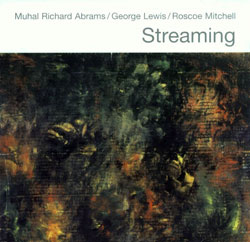
Out of Stock
Quantity in Basket: None
Log In to use our Wish List
Shipping Weight: 5.00 units
Sample The Album:
Muhal Richard Abrams-piano, bell, bamboo flute, taxi horn, percussion
George Lewis-trombone, laptop
Roscoe Mitchell-soprano saxophone, alto saxophone, percussion
Click an artist name above to see in-stock items for that artist.
UPC: 808713002225
Label: Pi Recordings
Catalog ID: PI 22
Squidco Product Code: 7082
Format: CD
Condition: New
Released: 2006
Country: USA
Packaging: Jewel Tray
Recorded at Systems Two, in Brooklyn, New York, on January 8th and 9th, 2005, by Tom Hamilton.
"Any new recording by Muhal Richard Abrams, George Lewis and Roscoe Mitchell would be a notable occasion, but a recording by all three together is a genuine historical moment. All three are members of the Association for the Advancement of Creative Musicians (AACM). Muhal Richard Abrams (piano and percussion), a founder of the AACM, is a hugely influential musician who has been responsible for vastly expanding the boundaries of jazz. Roscoe Mitchell (saxophones and percussion) is well known as the founder of one of jazz's most recognized groups: The Art Ensemble of Chicago. George Lewis (trombone and laptop) is a MacArthur genius grant recipient who is influential in his use of computer electronics. The three have worked together in the past, recording on each other's albums such as Lewis' Shadowgraph (Black Saint, 1977), Mitchell's Nonaah (Nessa, 1978) and Abrams' Spihumonesty (Black Saint, 1980). The trio most recently played together at the 2003 Venice Biennale and that concert provided at least part of the impetus for the three to collaborate again as a trio.
So how to describe this music? As George Lewis wrote in his liner notes for the CD, "What we hear are particular moments in time, in which improvisative musical experience proceeds directly from manifestations of trust and openness, and from visions of new models of community." "Trust" and "open" are two words that Lewis often goes back to when describing the creative process behind this music. Unlike the composed pieces found on the trio's previous recorded works, the five pieces found on this CD were openly improvised - each piece is a spontaneous creation. There were no prior agreements as to tempo, timbre, volume or length - any such rules would only restrict the open flow of ideas. The AACM draws a clear distinction between improvisation that is "open" as opposed to "free." Perhaps it's just a matter of semantics, but "free" improvisation as a genre is often thought to be an act of solipsistic self-absorption, where connection to your fellow musicians takes second place to the indulgence of the ego. "Open," on the other hand, as George explained to us, implies boundless possibilities. Because there is a tacit agreement to converse in a non-hierarchical manner, each musician is entrusted to not impose his will in a manner that is destructive to open dialogue. With this trust, the dialogue is truly open - open for each musician to move around in space, use silence, softness and sustains without fear of someone else crowding in to fill your space. As George said, "Open is not a practice, but a possibility. All you are required to do is to bring your own experience, concentrate on what's at hand and be prepared to evaluate, come up with solutions, view ideas from multiple perspectives and state ideas from multiple points of view."
How then can a listener experience this music? It certainly would be difficult to listen to this music in a casual way. Because there are no familiar guideposts, the listener must concentrate to understand the dialogue. Who is leading with the exposition of an idea? How do the others respond? Listen for the mobility from one idea to another and the tension that is created when one musician is ready to move on and the others want to stay on point. Listen for texture, the use of space. Listen for how the musicians relate to one another, sometimes with deference, other times like friends engaged in a vigorous discussion. Just listen to the first couple of minutes of the first track "Scrape." George is the first to make a statement, soon joined by both Roscoe and Muhal, each trying to get a word in edgewise. After a brief pause, Roscoe lets loose a cry, after which all three scramble to make their point. Roscoe then takes the lead in his statement, only to let go when Muhal reenters with a stentorian rumble. When one listens in this way, what is revealed is music with unpredictable dramatic twists and turns, like an operatic dialogue without cliches."-Pi Recordings
Artist Biographies
• Show Bio for Muhal Richard Abrams "Muhal Richard Abrams - World renowned pianist and composer has been in the forefront of the contemporary music scene for well over forty years. Muhal is a co-founder of The Association for the Advancement of Creative Musicians (AACM), founder of The AACM School of Music and President of The Association for the Advancement of Creative Musicians, New York City Chapter. Muhal was the first recipient of the grand international jazz award, "The JazzPar Prize", which was awarded to him in 1990 by the Danish Jazz Center in Copenhagen, Denmark. In 1999 Muhal was presented a proclamation by Richard M. Daley, Mayor of the City of Chicago, declaring April 11, 1999 as Muhal Richard Abrams Day in Chicago. In 2009 Muhal was selected to be a USA Prudential Fellow by United States Artist. In 2010 Mr. Abrams was inducted into the Downbeat Magazine "Jazz Hall of Fame". Also, in 2010 Mr. Abrams was chosen by the National Endowment for the Arts to be a NEA Jazz Master. On May 16, 2012, Muhal received the degree of Doctor of Music, honoris causa, from Columbia University, New York City. Also, on October 19, 2012, the Mid-Atlantic Arts Foundation presented Dr. Abrams with The BNY Mellon Jazz Living Legacy Award at The Kennedy Center, Washington, D. C. Except for a brief period of study at Chicago Musical College and Governors State University in Chicago, Illinois where he studied electronic music, Dr. Abrams is predominately a self-taught musician who, as a result of many years of observation, analysis, and practice as a performing musician, has developed a highly respected command of a variety of musical styles both as a pianist and composer. The versatile Dr. Abrams and members of The AACM (Association for the Advancement of Creative Musicians) are responsible for some of the most original new music approaches of the last four decades. Some of Dr. Abrams' compositions are: "String Quartet #2" performed by Kronos Quartet on November 22, 1985 at Carnegie Recital Hall in New York City; "Piano Duet #1" performed by Ursula Oppens and Frederic Rzewski for Music at the Crossroads on February 11, 1986, "Saturation Blue" performed on March 14, 1986, by The Brooklyn Philharmonic Orchestra Chamber Ensemble, "Folk Tales 88'" performed by The Brooklyn Philharmonic Orchestra on July 9, 1988, "Transversion I OP. 6" performed February 22 & 23, 1991 by The Detroit Symphony Orchestra, "What A Man" commissioned and performed by the Black Repertory Ensemble in behalf of the Center for Black Music Research at Columbia College and The Friends of the Chicago Public Library in honor of the Late Mayor Harold Washington and to commemorate the opening of the Honorable Harold Washington Library on October 7, 1991; "Duet for Violin and Piano", commissioned by the McKim Fund in the Library of Congress, 1996; "Impressions 1" performed by the SEM Ensemble, 1997, "2000 Plus The Twelfth Step" performed by the Carnegie Hall Jazz Band, 1999. "Tomorrow's Song, As Yesterday Sings Today" performed by the American Composers Orchestra at Carnegie Hall in New York City, 2000. "Mergertone" performed by the Janacek Philharmonic Orchestra, in Ostrava, Czech Republic, 2009. In addition to teaching privately, Dr. Abrams has taught composition and improvisation classes at the Banff Center in Canada, Columbia University in New York City, Syracuse University in Syracuse, New York, the New England Conservatory in Boston, Mass, the BMI composers workshop in New York City, and the Sibelius Academy in Helsinki, Finland." ^ Hide Bio for Muhal Richard Abrams • Show Bio for George Lewis "George E. Lewis is the Edwin H. Case Professor of American Music at Columbia University. A 2015 Fellow of the American Academy of Arts and Sciences and a Corresponding Fellow of the British Academy, Lewis has received a MacArthur Fellowship (2002), a Guggenheim Fellowship (2015), a United States Artists Walker Fellowship (2011), an Alpert Award in the Arts (1999), and fellowships from the National Endowment for the Arts. In 2015, Lewis received the degree of Doctor of Music (DMus, honoris causa) from the University of Edinburgh. A member of the Association for the Advancement of Creative Musicians (AACM) since 1971, Lewis's work in electronic and computer music, computer-based multimedia installations, and notated and improvisative forms is documented on more than 140 recordings. His work has been presented by the BBC Scottish Symphony Orchestra, London Philharmonia Orchestra, Radio-Sinfonieorchester Stuttgart, Boston Modern Orchestra Project, Talea Ensemble, Dinosaur Annex, Ensemble Pamplemousse, Wet Ink, Ensemble Erik Satie, Eco Ensemble, and others, with commissions from American Composers Orchestra, International Contemporary Ensemble, Harvestworks, Ensemble Either/Or, Orkestra Futura, Turning Point Ensemble, San Francisco Contemporary Music Players, 2010 Vancouver Cultural Olympiad, IRCAM, Glasgow Improvisers Orchestra, and others. Lewis has served as Ernest Bloch Visiting Professor of Music, University of California, Berkeley; Paul Fromm Composer in Residence, American Academy in Rome; Resident Scholar, Center for Disciplinary Innovation, University of Chicago; and CAC Fitt Artist In Residence, Brown University. Lewis received the 2012 SEAMUS Award from the Society for Electro-Acoustic Music in the United States, and his book, A Power Stronger Than Itself: The AACM and American Experimental Music (University of Chicago Press, 2008) received the American Book Award and the American Musicological Society's Music in American Culture Award. Lewis is co-editor of the two-volume Oxford Handbook of Critical Improvisation Studies (2016), and his opera Afterword, commissioned by the Gray Center for Arts and Inquiry at the University of Chicago, premiered at the Museum of Contemporary Art Chicago in October 2015 and has been performed in the United States, United Kingdom, and the Czech Republic. Professor Lewis came to Columbia in 2004, having previously taught at the University of California, San Diego, Mills College, the School of the Art Institute of Chicago, the Koninklijke Conservatorium Den Haag, and Simon Fraser University's Contemporary Arts Summer Institute. Lewis studied composition with Muhal Richard Abrams at the AACM School of Music, and trombone with Dean Hey." ^ Hide Bio for George Lewis • Show Bio for Roscoe Mitchell "Roscoe Mitchell (born August 3, 1940) is an American composer, jazz instrumentalist, and educator, known for being "a technically superb - if idiosyncratic - saxophonist." The Penguin Guide to Jazz described him as "one of the key figures" in avant-garde jazz; All About Jazz states that he has been "at the forefront of modern music" for the past 35 years. Critic Jon Pareles in The New York Times has mentioned that Mitchell "qualifies as an iconoclast." In addition to his own work as a bandleader, Mitchell is known for cofounding the Art Ensemble of Chicago and the Association for the Advancement of Creative Musicians (AACM). Mitchell was born in Chicago, Illinois. He also grew up in the Chicago area, where he played saxophone and clarinet at around age twelve. His family was always involved in music with many different styles playing in the house when he was a child as well as having a secular music background. His brother, Norman, in particular was the one who introduced Mitchell to jazz. While attending Englewood High School in Chicago, he furthered his study of the clarinet. In the 1950s, he joined the United States Army, during which time he was stationed in Heidelberg, Germany and played in a band with fellow saxophonists Albert Ayler and Rubin Cooper, the latter of which Mitchell commented "took me under his wing and taught me a lot of stuff." He also studied under the first clarinetist of the Heidelberg Symphony while in Germany. Mitchell returned to the United States in the early 1960s, relocated to the Chicago area, and performed in a band with Wilson Junior College undergraduates Malachi Favors (bass), Joseph Jarman, Henry Threadgill, and Anthony Braxton (all saxophonists). Mitchell also studied with Muhal Richard Abrams and played in his band, the Muhal Richard Abrams' Experimental Band, starting in 1961. In 1965, Mitchell was one of the first members of the non-profit organization Association for the Advancement of Creative Musicians (AACM) along with Jodie Christian (piano), Steve McCall (drums), and Phil Cohran (composer). The following year Mitchell, Lester Bowie (trumpet), Kalaparusha Maurice McIntyre (tenor saxophone), Favors, Lester Lashley (trombone), and Alvin Fielder (drums), recorded their first studio album, Sound. The album was "a departure from the more extroverted work of the New York-based free jazz players" due in part to the band recording with "unorthodox devices" such as toys and bicycle horns. From 1967 Mitchell, Bowie, Favors and, on occasion, Jarman performed as the Roscoe Mitchell Art Ensemble, then the Art Ensemble, and finally in 1969 were billed as the Art Ensemble of Chicago. The group included Phillip Wilson on drums for short span before he joined Paul Butterfield's band. The group lived and performed in Europe from 1969 to 1971, though they arrived without any percussionist after Wilson left. To fill the void, Mitchell commented that they "evolved into doing percussion ourselves." The band did eventually get a percussionist, Don Moye, who Mitchell had played with before and was living in Europe at that time. For performances, the band often wore brilliant African costumes and painted their faces. The Art Ensemble of Chicago have been described as becoming "possibly the most highly acclaimed jazz band" in the 1970s and 1980s. Mitchell and the others returned to the States in 1971. After having been back in Chicago for three years, Mitchell then established the Creative Arts Collective (CAC) in 1974 that had a similar musical aesthetic to the AACM. The group was based in East Lansing, Michigan and frequently performed in auditoriums at Michigan State University. Mitchell also formed the Sound Ensemble in the early 1970s, an "outgrowth of the CAC" in his words, that consisted mainly of Mitchell, Hugh Ragin, Jaribu Shahid, Tani Tabbal, and Spencer Barefield. In the 1990s, Mitchell started to experiment in classical music with such composers/artists such as Pauline Oliveros, Thomas Buckner, and Borah Bergman, the latter two of which formed a trio with Mitchell called Trio Space. Buckner was also part of another group with Mitchell and Gerald Oshita called Space in the late 1990s. He then conceived the Note Factory in 1992 with various old and new collaborators as another evolution of the Sound Ensemble. He lived in the area of Madison, Wisconsin and performed with a re-assembled Art Ensemble of Chicago. In 1999, the band was hit hard with the death of Bowie, but Mitchell fought off the urge to recast his position in the group, stating simply "You can't do that" in an interview with Allaboutjazz.com editor-in-chief Fred Jung. The band continued on despite the loss. Mitchell has made a point of working with younger musicians in various ensembles and combinations, many of whom were not yet born when the first Art Ensemble recordings were made. Mainly from Chicago, these players include trumpeter Corey Wilkes, bassist Karl E. H. Seigfried, and drummer Isaiah Spencer. In 2007, Mitchell was named Darius Milhaud Chair of Composition at Mills College in Oakland, California, where he currently lives. Mitchell was chosen by Jeff Mangum of Neutral Milk Hotel to perform at the All Tomorrow's Parties festival in March 2012 in Minehead, England." ^ Hide Bio for Roscoe Mitchell
12/17/2025
Have a better biography or biography source? Please Contact Us so that we can update this biography.
12/17/2025
Have a better biography or biography source? Please Contact Us so that we can update this biography.
12/17/2025
Have a better biography or biography source? Please Contact Us so that we can update this biography.
Track Listing:
1. Scrape
2. Bound
3. Dramaturns
4. Soundhear
5. Streaming
Pi Records
Improvised Music
Jazz
Art Ensemble of Chicago
November 2006
Chicago Jazz & Improvisation
Trio Recordings
Search for other titles on the label:
Pi Recordings.



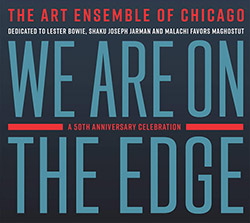
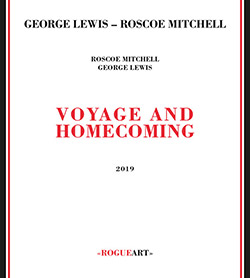
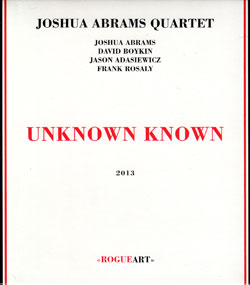


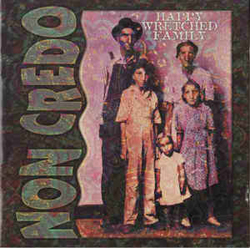

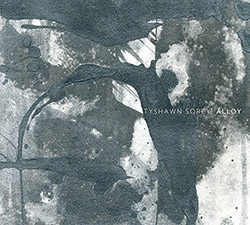











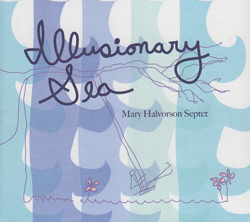
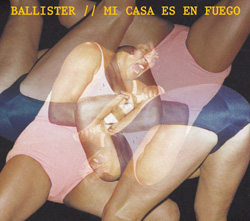

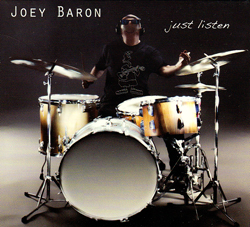

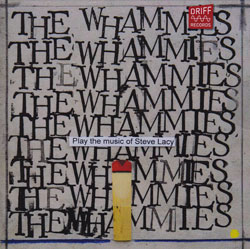

![HobbyHouse (Mia Dyberg / Axel Filip): HobbyHouse [CD + DOWNLOAD]](https://www.teuthida.com/productImages/misc4/36944.jpg)
![Mines, Kelsey / Erin Rogers: Scratching At The Surface [CD + DOWNLOAD]](https://www.teuthida.com/productImages/misc4/36945.jpg)
![Nebbia, Camila (feat/ Marilyn Crispell / Lesley Mok): A Reflection Distorts Over Water [CD + DOWNLOAD]](https://www.teuthida.com/productImages/misc4/36946.jpg)
![Vanheerentals, Adia: Taking Place [CD + DOWNLOAD]](https://www.teuthida.com/productImages/misc4/36947.jpg)
![Mines, Kelsey / Vinny Golia: Collusion and Collaboration [CD + DOWNLOAD]](https://www.teuthida.com/productImages/misc4/36948.jpg)
![Parkins, Zeena: Lament For The Maker [CD + DOWNLOAD]](https://www.teuthida.com/productImages/misc4/36949.jpg)
![Evans, Peter / Mike Pride : A Window, Basically [CD + DOWNLOAD]](https://www.teuthida.com/productImages/misc4/36950.jpg)


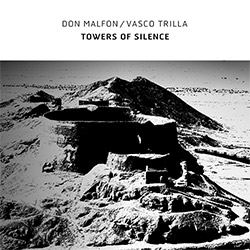
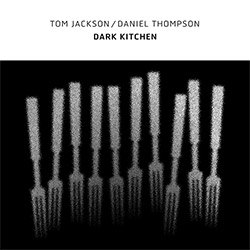
![Frey, Jurg : Composer, Alone [3 CDs]](https://www.teuthida.com/productImages/misc4/36927.jpg)
![Belorukov, Ilia / Alex Riva: Wrestling For Futility [CASSETTE w/DOWNLOAD]](https://www.teuthida.com/productImages/misc4/36994.jpg)
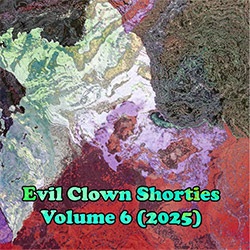
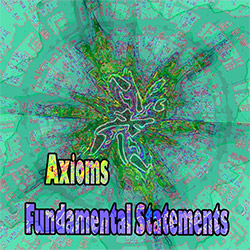










![Agnel, Sophie: Learning [VINYL]](https://www.teuthida.com/productImages/misc4/36841.jpg)

![Monaco, Amanda (w/ Michael Attias / Sean Conly / Satoshi Takeishi) : Deathblow [VINYL+ DOWNLOAD]](https://www.teuthida.com/productImages/misc4/36956.jpg)
![Frey, Jurg with ensemble]h[iatus: Je Laisse A La Nuit Son Poids D](https://www.teuthida.com/productImages/misc4/36988.jpg)
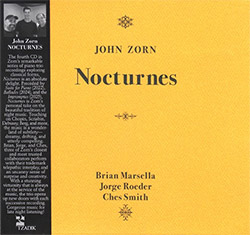
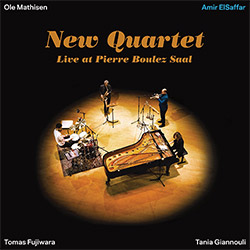
![ElSaffar, Amir / New Quartet : Live at Pierre Boulez Saal [VINYL]](https://www.teuthida.com/productImages/misc4/36830.jpg)

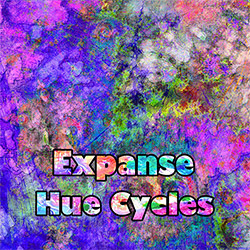
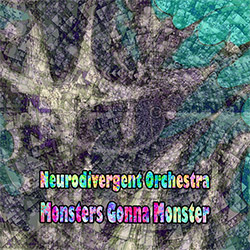
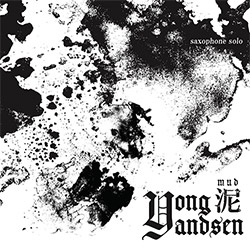

![Musicworks Magazine: #152 Fall 25 [MAGAZINE + CD]](https://www.teuthida.com/productImages/misc4/37004.jpg)
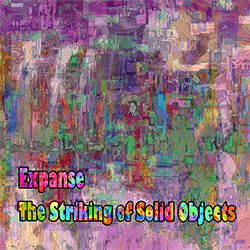




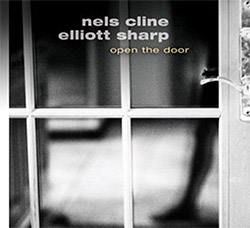
![[ahmed] (Thomas / Grip / Gerbal / Wright): Sama](https://www.teuthida.com/productImages/misc4/36976.jpg)

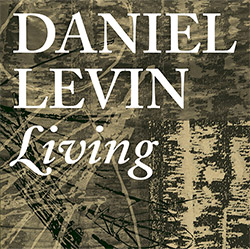
![Cleaver, Gerald / Brandon Lopez / Hprizm: In The Wilderness [COLOR VINYL]](https://www.teuthida.com/productImages/misc4/33060.jpg)
![McPhee, Joe : Defiant Jazz: a Joe McPhee Taster [VINYL]](https://www.teuthida.com/productImages/misc4/36859.jpg)
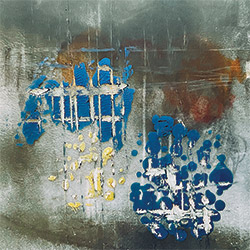
![Mateen, Sabir / Patrick Holmes / Federico Ughi : Survival Situation [LTD VINYL LP + DOWNLOAD]](https://www.teuthida.com/productImages/misc4/29891.jpg)
![Tucker, Dave / Pat Thomas / Thurston Moore / Mark Sanders: Educated Guess Vol. 1 [COLORED VINYL]](https://www.teuthida.com/productImages/misc4/30183.jpg)
![Sarian, Michael / Matthew Putman: A Lifeboat (Part I) [COLORED VINYL]](https://www.teuthida.com/productImages/misc4/30426.jpg)

![Genthon, Anouck / Lionel Marchetti: Suite Blanche [2 CDs]](https://www.teuthida.com/productImages/misc4/36642.jpg)
![Toeplitz, Kasper T.: Erosions Programmees [CD + BOOKLET]](https://www.teuthida.com/productImages/misc4/36639.jpg)
![Gate, The : Amost Live [CASSETTE + MAGAZINE]](https://www.teuthida.com/productImages/misc4/36836.jpg)






![A Magic Whistle: The Solar Cell [VINYL]](https://www.teuthida.com/productImages/misc4/36658.jpg)

![McGee, Hal: Columbus Expedition [Cassette w/ Download]](https://www.teuthida.com/productImages/misc4/36650.jpg)


![Jaeger, Kassel: Fernweh [VINYL 2 LPs]](https://www.teuthida.com/productImages/misc4/36541.jpg)





![+DOG+: The Light Of Our Lives [2 CDs]](https://www.teuthida.com/productImages/misc4/36009.jpg)


![Eternities: Rides Again [CASSETTE]](https://www.teuthida.com/productImages/misc4/36247.jpg)

![Lopez, Francisco: Untitled (2021-2022) [2 CDs]](https://www.teuthida.com/productImages/misc4/36438.jpg)





![Pisaro-Liu, Michael: Within (2) / Appearance (2) [2 CDs]](https://www.teuthida.com/productImages/misc4/36831.jpg)










![Musicworks Magazine: #151 Summer 25 [MAGAZINE + CD]](https://www.teuthida.com/productImages/misc4/36559.jpg)

![Brown, Dan / Dan Reynolds: Live At The Grange Hall [unauthorized][CASSETTE]](https://www.teuthida.com/productImages/misc4/36245.jpg)


![Zorn, John: The Song of Songs [CD + CD BOOK]](https://www.teuthida.com/productImages/misc4/36923.jpg)

![Coultrain: Mundus [COLORED VINYL]](https://www.teuthida.com/productImages/misc4/33056.jpg)
![Hprizm: Signs Remixed [COLORED VINYL]](https://www.teuthida.com/productImages/misc4/30635.jpg)
![Halls Of the Machine: All Tribal Dignitaries [CASSETTE w/ DOWNLOAD]](https://www.teuthida.com/productImages/misc4/36134.jpg)



![Koenjihyakkei: Live at Club Goodman [2 CDs]](https://www.teuthida.com/productImages/misc4/36111.jpg)

![Sorry For Laughing (G. Whitlow / M. Bates / Dave-Id / E. Ka-Spel): Rain Flowers [2 CDS]](https://www.teuthida.com/productImages/misc4/35985.jpg)

![Rolando, Tommaso / Andy Moor : Biscotti [CASSETTE w/ DOWNLOADS]](https://www.teuthida.com/productImages/misc4/36106.jpg)


![Electric Bird Noise / Derek Roddy: 8-10-22 [CD EP]](https://www.teuthida.com/productImages/misc4/35970.jpg)








![Elephant9 : Mythical River [VINYL]](https://www.teuthida.com/productImages/misc4/34624.jpg)



![Elephant9 with Terje Rypdal: Catching Fire [VINYL 2 LPs]](https://www.teuthida.com/productImages/misc4/35355.jpg)
![Coley, Byron: Dating Tips for Touring Bands [VINYL]](https://www.teuthida.com/productImages/misc4/17906.jpg)

![Lost Kisses: My Life is Sad & Funny [DVD]](https://www.teuthida.com/productImages/misc4/lostKissesDVD.jpg)